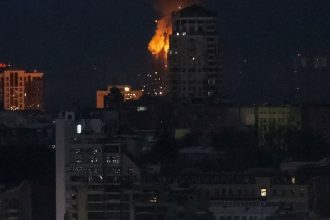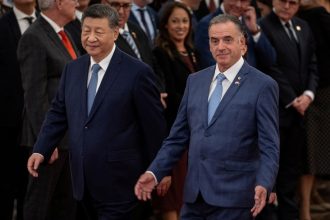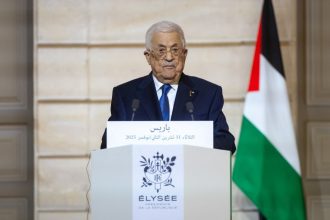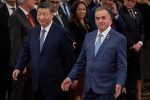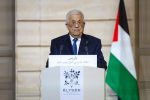In a dramatic turn of global diplomacy, former U.S. President Donald Trump has stirred headlines once again—this time by urging Ukrainian President Volodymyr Zelenskiy to make a deal with Russian President Vladimir Putin, even if it means conceding more Ukrainian territory.
The comments came after a tense meeting in Alaska on Friday, where Trump and Putin reportedly discussed the ongoing war. According to a source familiar with the conversation, Putin proposed freezing most of the current front lines if Ukraine agreed to hand over the rest of Donetsk—an industrial stronghold and strategic prize. Zelenskiy, firm in his stance, rejected the proposal.
“Russia is a very big power, and they’re not,” Trump bluntly told reporters, implying that Ukraine should consider its position and come to the negotiation table quickly.
Shifting Positions, Shifting Stakes
What’s raising eyebrows globally is Trump’s new stance. Prior to the summit, he emphasized the need for a ceasefire as a precondition to talks. But after the meeting with Putin, he posted on Truth Social:
“It was determined by all that the best way to end the horrific war between Russia and Ukraine is to go directly to a Peace Agreement… not a mere Ceasefire Agreement, which often times do not hold up.”
But Zelenskiy, who knows too well the cost of even a temporary pause, fired back:
“Stopping the killing is a key element of stopping the war,” he posted on X (formerly Twitter).
Still, despite the tension, Zelenskiy has agreed to meet Trump in Washington tomorrow—a symbolic and potentially historic meeting, as global powers look on.
Tensions, Talks, and the Future of Europe
Trump has floated the idea of a three-way summit with both Putin and Zelenskiy in the near future. Though Moscow hasn’t confirmed any such discussion, Putin did not oppose the idea. Kremlin aide Yuri Ushakov said the topic hadn’t officially come up—but in geopolitics, silence often speaks volumes.
Meanwhile, European allies of Ukraine welcomed Trump’s efforts but remained firm in their support of Ukraine. German Foreign Minister Johann Wadephul confirmed that European leaders may participate in tomorrow’s White House discussions.
British PM Keir Starmer added, “An end to the war is closer than ever, thanks to Trump,” but warned more sanctions would follow if Russia refuses to budge.
Security, Sovereignty, and the Human Cost
Zelenskiy remains unwavering: no peace deal will be accepted without real security guarantees and without honoring Ukraine’s constitution, which prohibits ceding territory. Fortress cities like Sloviansk and Kramatorsk aren’t just towns—they are symbols of resilience, standing as Ukraine’s final line of defense in Donetsk.
The toll of war is staggering. Since Russia’s full-scale invasion in 2022, over a million lives have been lost or wounded. Families torn apart. Cities flattened. Futures darkened.
Yet Trump, in a Fox News interview, claimed he and Putin had “largely agreed” on a path forward. “Ukraine has to agree to it,” he added. “Maybe they’ll say ‘no’.”
What Comes Next?
Trump’s final remarks to Putin after the summit were telling:
“We’ll speak to you very soon and probably see you again very soon.”
To which Putin, smiling, replied:
“Next time in Moscow.”
While the world watches, the stakes couldn’t be higher. One man urges peace. Another demands land. And millions of Ukrainians hold their breath—wondering whether diplomacy will bring relief, or betrayal.



